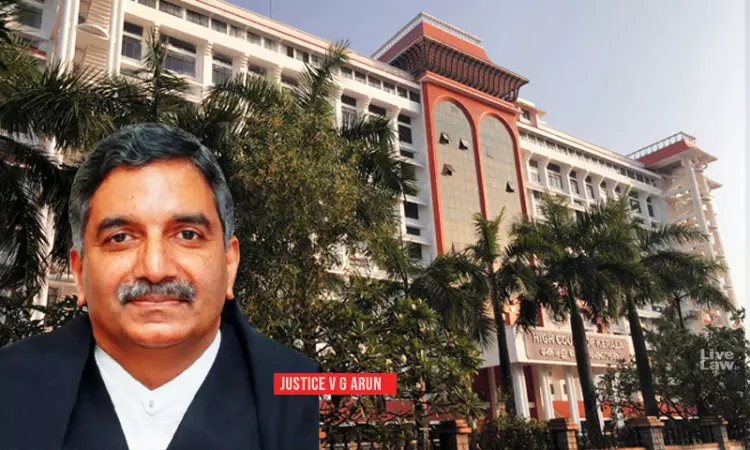- Home
- /
- High Courts
- /
- Kerala High Court
- /
- Physically Incapacitated Accused On...
Physically Incapacitated Accused On Bail Can Be Permitted To Appear Virtually For Judgment Pronouncement By JMFC: Kerala High Court
Tellmy Jolly
13 Feb 2025 3:52 PM IST
The Kerala High Court has ruled that an accused who is out on bail and is physically incapacitated can be permitted to appear through virtual mode on the date fixed for the pronouncement of judgment, by the Judicial First Class Magistrate Court.Section 353(6) CrPC states that an accused, not in custody, has to be present for hearing the judgement pronounced, except when personal appearance...
The Kerala High Court has ruled that an accused who is out on bail and is physically incapacitated can be permitted to appear through virtual mode on the date fixed for the pronouncement of judgment, by the Judicial First Class Magistrate Court.
Section 353(6) CrPC states that an accused, not in custody, has to be present for hearing the judgement pronounced, except when personal appearance has been dispensed with.
Rule 3(1) of the Electronic Video Linkage Rules for Courts (Kerala) of 2021 reads thus: Electronic video linkage facilities may be used at all stages of judicial proceedings or under any other special law for the time being in force, and also to such other proceedings which are conducted by the Court.
In this case, the petitioner is an 84 year old lady was absent on the date of pronouncement of judgment as she was bedridden due to colon cancer.
Justice V.G. Arun observed that Rule 3(1) can include pronouncement of judgement also.
“In situations like this, the Electronic Video Linkage Rules for Courts (Kerala), 2021 can be put to use for securing the ends of justice. In this regard, it is pertinent to note that Rule 3(1) provides for usage of video conferencing facilities at all stages of judicial proceedings, which would include pronouncement of judgment also.”
As per facts, a cheating case was registered against the petitioner and two others. The case was posted for final judgment after trial and hearing. The petitioner remained absent on the date of pronouncement of judgment since she was suffering from colon cancer.
The Petitioner had filed an application under Section 353 read with Section 205 of the CrPC seeking exemption from personal appearance and permission to receive judgment.
The Magistrate Court dismissed her application and cancelled her bail. It sentenced the other two accused to two years imprisonment and split the case of the petitioner and renumbered it.
The Counsel for Petitioner submitted that since other two accused were present, the Trial Court could have pronounced the judgment in Petitioner's case also, by permitting her to appear through virtual mode.
The Court observed that as per the proviso to Section 353(6) of the CrPC, the Trial Court can pronounce the judgement even in the absence of one or more accused, in the presence of other accused, to avoid delay.
The High Court observed that the Trial Could should have considered the plight of the Petitioner and permitted her to appear in virtual mode as per Rule 3(1) of the Electronic Video Linkage Rules for pronouncement of the judgment also.
As such, the Court permitted the Petitioner to appear through virtual mode on the date fixed for pronouncement of judgment by the Magistrate.
Court said…"in cases where the accused is physically incapacitated from being present in court for the purpose of hearing the judgment and the court pronouncing the judgment is the Judicial First Class Magistrate Court, permission can be granted to the accused to appear through virtual mode, provided he/she is on bail.”
Counsel for Petitioner: Advocates C.S.Manu, Dilu Joseph, C.A.Anupaman, T.B.Sivaprasad, C.Y.Vijay Kumar, Manju E.R. ,Anandhu Satheesh, Alint Joseph, Paul Jose
Counsel for Respondents: Public Prosecutor M C Ashi
Case Title: Chinnamma George v State of Kerala
Case No: CRL.MC NO. 10405 OF 2023
Citation: 2025 LiveLaw (Ker) 103



